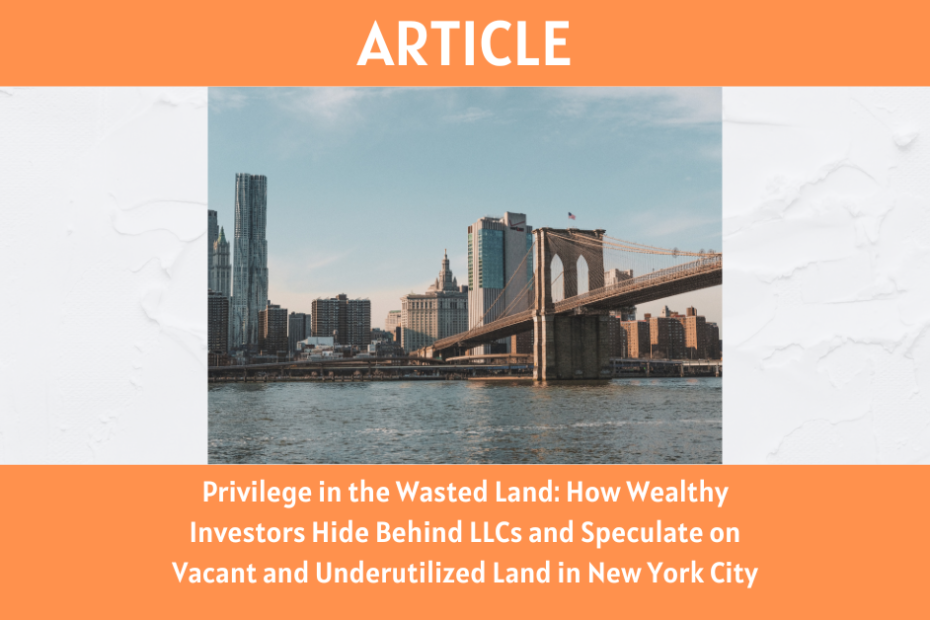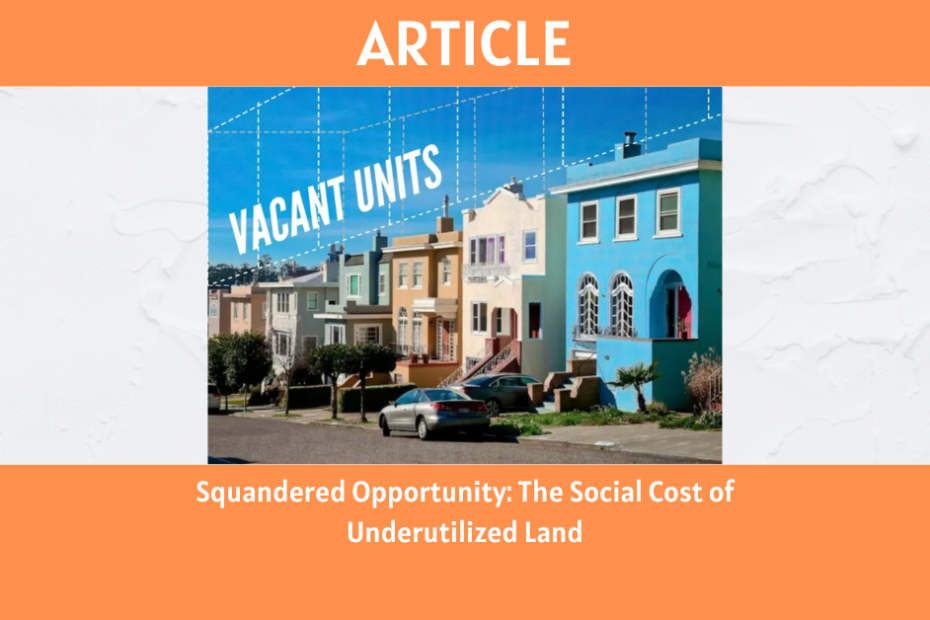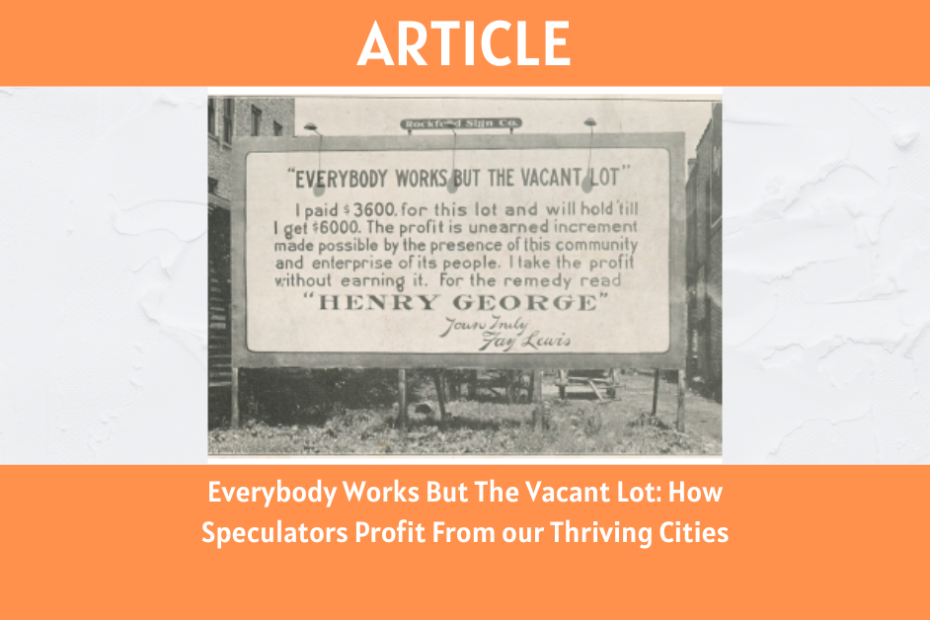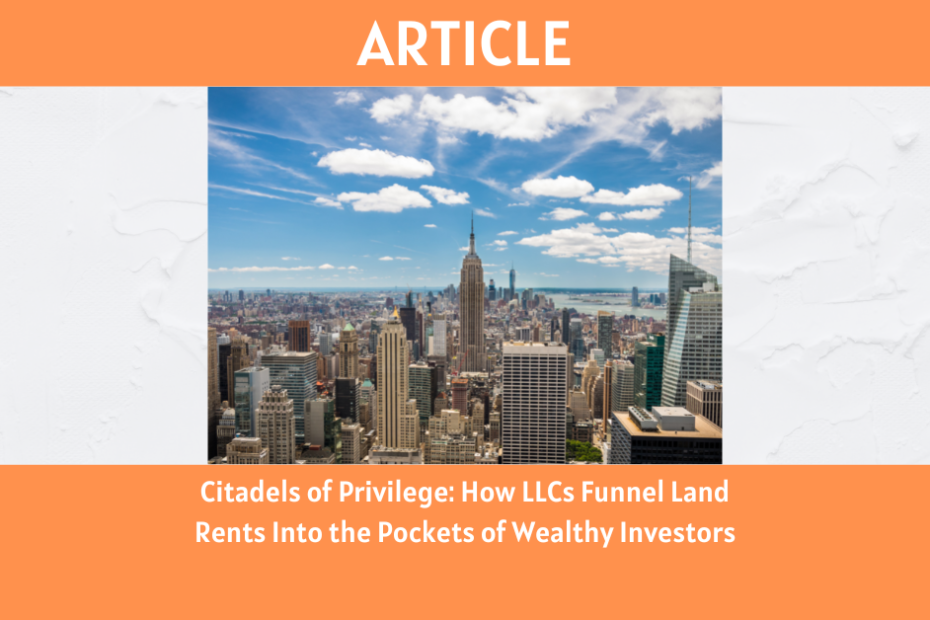Privilege in the Wasted Land: How Wealthy Investors Hide Behind LLCs and Speculate on Vacant and Underutilized Land in New York City
Over the past few months, we have published a series of articles which explore the presence of vacant and underutilized land in New York City and the role of Limited Liability Companies (LLCs) in the city’s housing market. Today, we publish our ground-breaking report, Privilege in the Wasted Land, which examines the factors associated with these phenomena and clearly establishes that LLC investors are over-represented among owners of both vacant and underutilized land in NYC.




